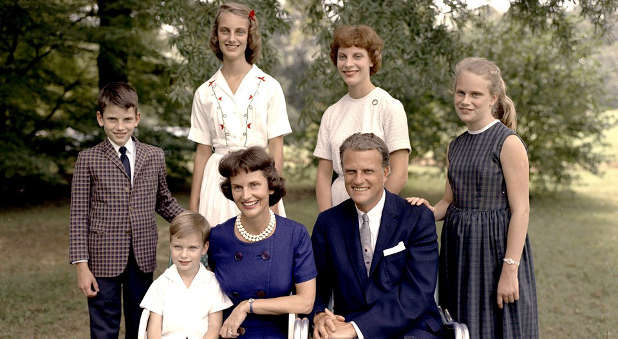Ruth Bell Graham’s 5 Truths on Prodigals and Those Who Love Them
Each day, the BGEA team hears from parents, grandparents, siblings and friends who desperately want their wayward loved ones to come back to God.
If you’re praying for a prodigal, we hope you’ll find wisdom and encouragement from the words of Ruth Bell Graham, who spent countless hours praying for her own prodigals.
The excerpts below are from Mrs. Graham’s book, Prodigals and Those Who Love Them.
1. It’s important to have a plan. Consider this poem from Mrs. Graham:
I will—
Encourage.
Keep communications open at all times.
Let them know they are loved and welcome at home, always.
Permit the children to disagree with me, provided they do it respectfully. (And I find occasionally they are right and I am wrong).
Make a clear distinction between moral and nonmoral issues.
Encourage.
2. Your own walk with God must come first. Mrs. Graham wrote about a time when she was worried about her son, Franklin, and his friend, who were planning to go on a dangerous trip.
I needed to recommit my life to God before I could ask that He do that for them.
I prayed, “Lord, You take care of them. I need to settle some things in my own life with You.”
It is unrealistic to ask the Lord to do in someone else’s life that which we are unwilling for Him to do in ours.
I settled some things with God that day. The load lifted, and peace came.
3. Worship and worry cannot live in the same heart. One night when she was traveling far from home, Ruth Bell Graham was awakened in the middle of the night, thinking about one of her prodigals. She turned to Philippians 4:6-7:
“Do not be anxious about anything, but in everything by prayer and supplication with thanksgiving let your requests be made known to God. And the peace of God, which surpasses all understanding, will guard your hearts and your minds in Christ Jesus.”
Suddenly I realized the missing ingredient in my prayers had been “with thanksgiving.” So I put down my Bible and spent time worshipping Him for who and what He is. This covers more territory than any one mortal can comprehend. Even contemplating what little we do know dissolves doubts, reinforces faith and restores joy.
I began to thank God for giving me this one I loved so dearly in the first place. I even thanked Him for the difficult spots that taught me so much. And you know what happened? It was as if someone turned on the lights in my mind and heart, and the little fears and worries that had been nibbling away in the darkness like mice and cockroaches hurriedly scuttled for cover.
That was when I learned that worship and worry cannot live in the same heart: They are mutually exclusive.
4. There is always hope. I, as a mother, need to walk with God in loving obedience, feeding on His promises. If I lose heart, how can I be of any help?
“May the God of hope fill you with all joy and peace in believing, so that by the power of the Holy Spirit you may abound in hope” (Rom. 15:13).
5. Miracles are God’s department. “It is good that one should wait quietly for the salvation of the Lord” (Lam. 3:26).
We mothers must take care of the possible and trust God for the impossible.
We are to love, affirm, encourage, teach, listen and care for the physical needs of the family. We cannot convict of sin, create hunger and thirst after God, or convert.
These are miracles, and miracles are not in our department.
I bring those whom I love
to You,
commit each to
Your loving care:
then carry them away again
nor leave them there:
forgetting You
Who lived to die
(and rose again!)
care more than I.
So back I come
with my heart’s load,
confessing
my lack of faith
in You alone,
addressing
all I cannot understand
to You
Who do.
You know each heart,
each hidden wound,
each scar,
each one who played a part
in making those
we bring to You
the ones they are
(and dearer each to You
than us, by far),
So—
now I give them
to Your loving care,
with thankful heart,
—and leave them there. {eoa}
For the original article, visit billygraham.org.
















































